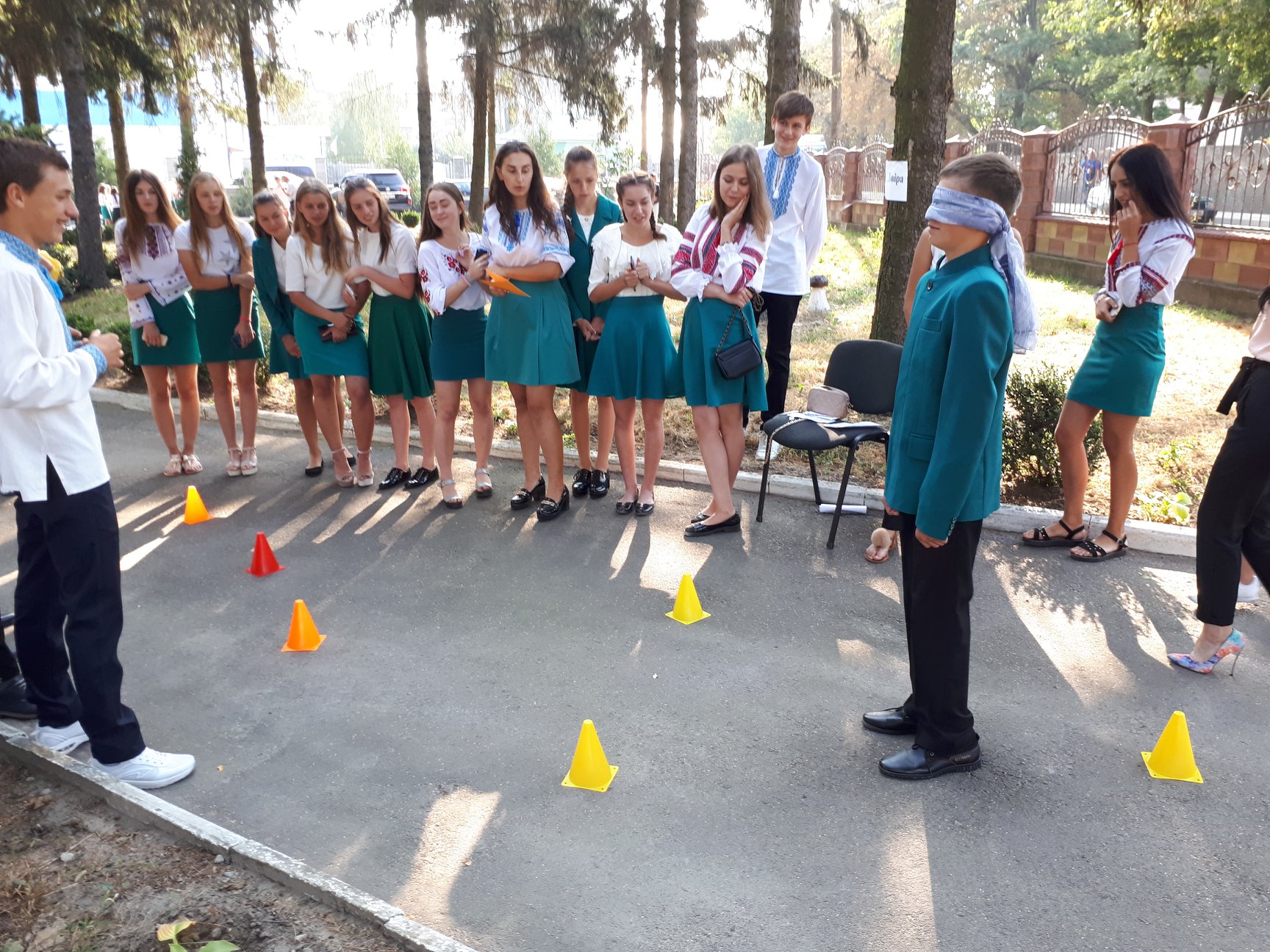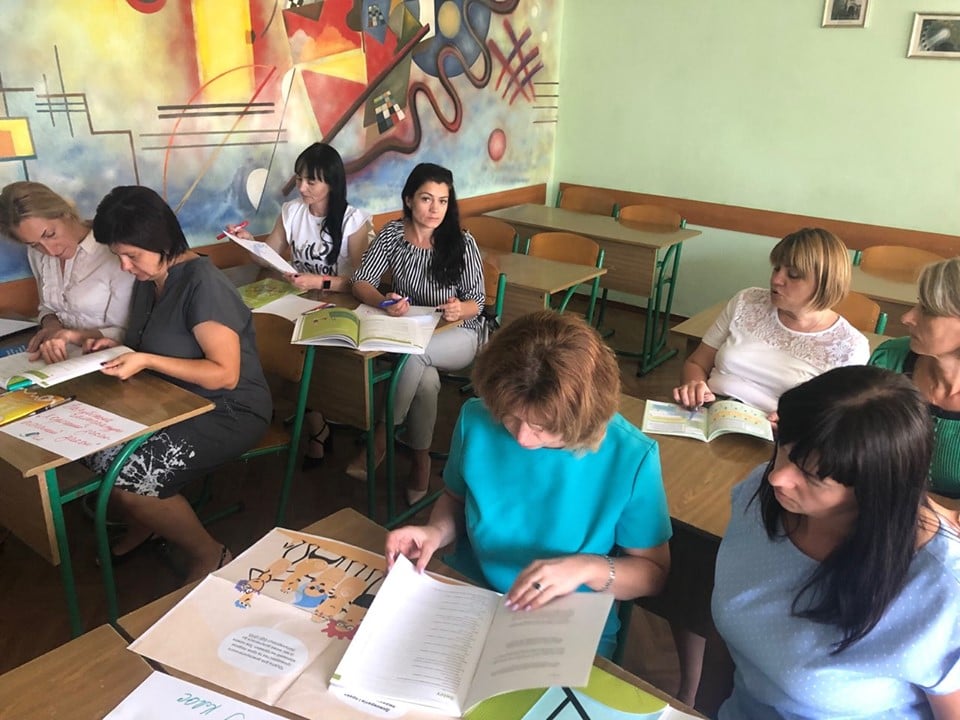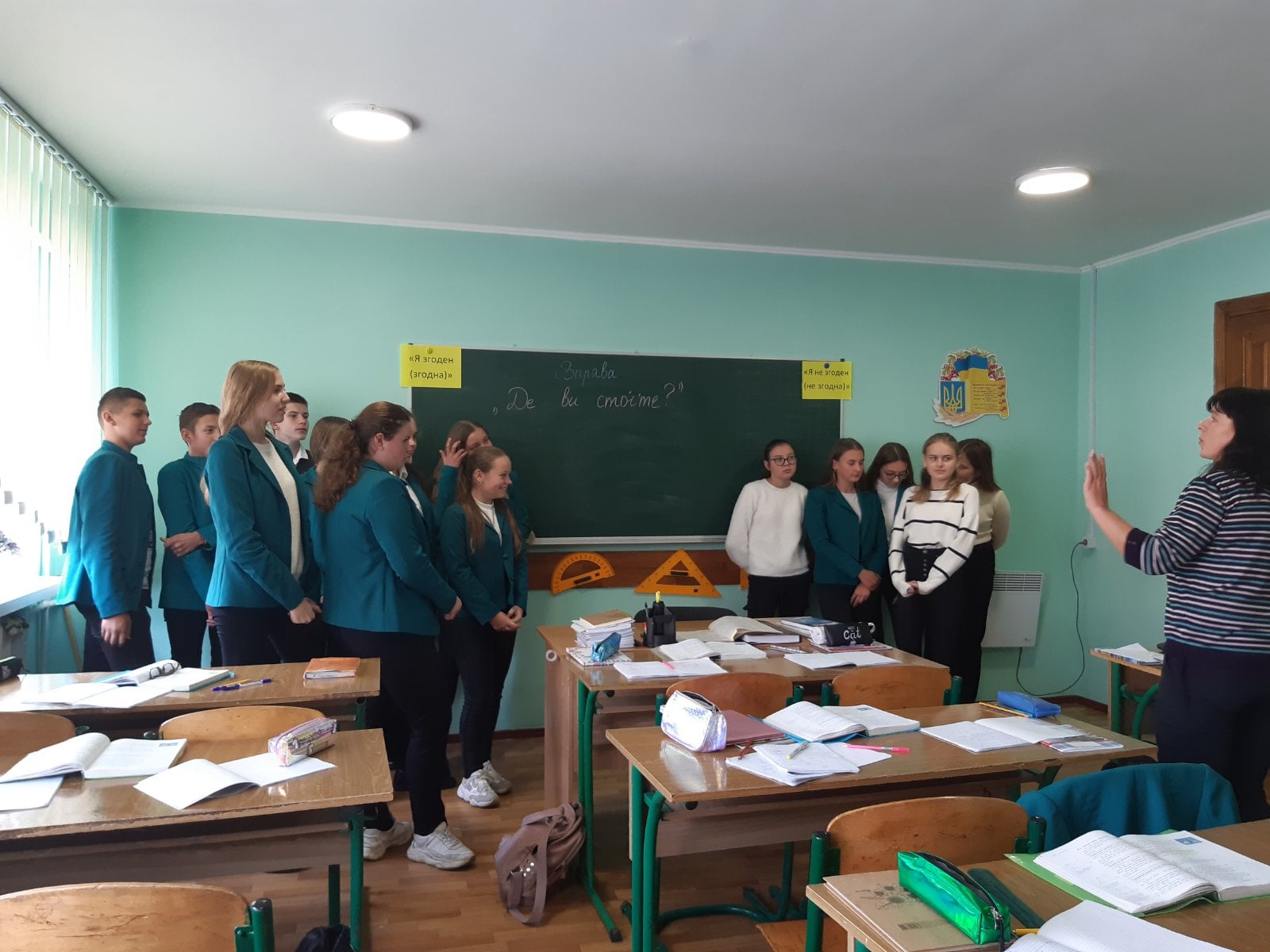Sarny, Rivne region

During her job shadowing visit to Slovakia within the the program "Increasing the competences of democratic citizenship through formal, non-formal and informal education", Oksana Salivonchyk, a youth worker and a trainer, was fascinated by the idea of combining formal and non-formal education for better development of science competences, more informed professional orientation and introduction of more interactive teaching methods. Seeing "how science comes to life" in Slovakia, Oksana suggested that representatives of the Sarny District Lyceum 'Leader', with which she had previously collaborated within the 'Schoold for Democracy' Programme, visit a science picnic in Ternopil.

After this trip, the teachers and students of the Lyceum also became fascinated by the idea of "livening up" their everyday studies. They managed to organize their own science picnic, where it was possible to conduct chemical experiments, get acquainted with human anatomy, to observe the demonstartions of the laws of physics, and other interesting things.
Lyceum's teaching staff is convinced that contemporary children need to be taught differently. Mechanical memorization, learning things by hear are not what they need and are willing to do. Instead, interactive methods, games are ways to wake up interest of students bring about a "spark in their eyes."
Oksana Salivonchyk is pleased with the result of this collaboration. “Teachers are opening up. They begin to use more interactive methods. They stop being afraid to experiment together with children."
And the students are happy too. They see practical implications of what used to be just theoretical information on the pages of their textbooks, they experiment - and start to believe in themselves.
Practical advice:
- To spark interest in ‘difficult’ subjects more practical experimentation is needed;
- Science and math are subjects in which interactive methods are not only possible, but also very helpful.
Materials that can be used:
80 exercises to develop civic competence in different subjects
Competences developed by youth: science and math competences, social competences, autonomous learning skill.
Additional positive effects: teachers in formal education institutions change their teaching methods to interactive, hands-on methods.

